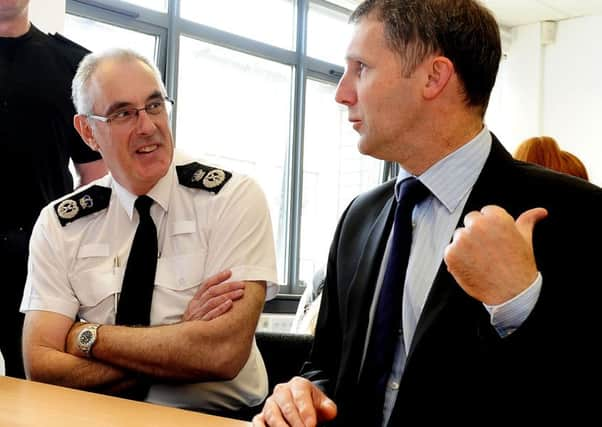Chris Marshall: Undercover policing review doesn't go far enough


Activists have been fighting for some time to have the Scottish Government take seriously concerns over the activities of the Metropolitan Police north of the border.
But the reality of Mr Matheson’s announcement was that it fell well short of what had been expected.
Advertisement
Hide AdAdvertisement
Hide AdThe minister has tasked HM Inspectorate of Constabulary in Scotland (HMICS) with carrying out an independent review of undercover policing activities dating back to 2000.
It follows the Home Office’s refusal to extend the Undercover Policing Inquiry led by Sir Christopher Pitchford after the Scottish Government made representations at the eleventh hour about Scotland’s inclusion.
In comparison to the rather limited Scottish probe, the Pitchford inquiry has a remit stretching back to 1968. It is expected to look at secretive policing operations during such era-defining events as the 1984-5 miners’ strike and the 1990 poll tax riots.
The inquiry is also looking at the work of the Metropolitan Police’s Special Demonstration Squad (SDS) and the now defunct National Public Order Intelligence Unit (NPOIU).
Last year Scotland Yard was forced to issue a public apology and pay compensation after officers attached to the unit were found to have deceived women into relationships while working undercover.
In addition to well-documented activities of undercover officers in England, campaigners believe many infiltrated environmental groups in the run-up to the 2005 G8 summit at Gleneagles.
There is further relevance to Scotland as Police Scotland’s chief constable, Phil Gormley, was head of Special Branch in 2006 – the division which had responsibility for the SDS. He has already confirmed he will give evidence to Pitchford if called to do so.
Announcing the HMICS review last week, Mr Matheson said he believed the best option was to have a “single coherent inquiry” looking at undercover policing across the UK.
Advertisement
Hide AdAdvertisement
Hide AdMr Matheson is correct but with the Home Office’s continued refusal to extend Pitchford, the Scottish Government must look at setting up an inquiry which is similar in scope and remit.
A review by the HMICS does not afford the issue the level of seriousness it deserves.
Responding to Mr Matheson’s decision, campaigners said they felt “betrayed” and question the independence of the HMICS, a body made up of former police officers.
While there is no evidence the HMICS is anything other than independent, the review must have the confidence of those who are seeking justice. In that respect it has already failed.
It appears the Scottish Government considered undercover policing concerns a non-issue in Scotland until more and more people came forward to complain about being spied on.
The government was slow to act and is now in a mess of its own making.
It may yet convince the UK Government of the need for Scotland to be included in Pitchford, although that is looking more and more like a forlorn hope.
The SNP will be keen to avoid another public inquiry but in the absence of Pitchford being extended, it should have little choice.